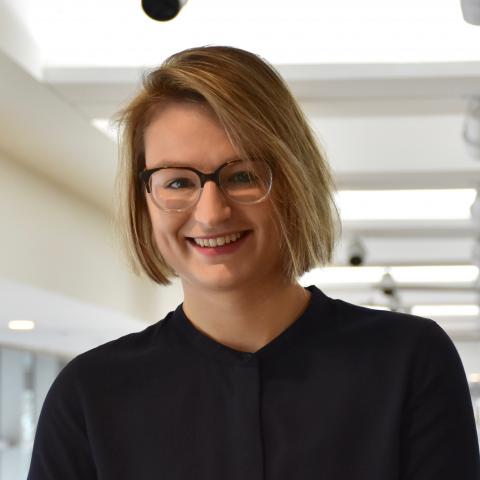Meet Our Researchers

SUSAN KLAEGER
Susan Klaeger wants to develop the next wave of personalized cancer therapies.
Personalized cancer vaccines—which train a patient’s immune system to identify and destroy tumors while sparing healthy tissue—may be a game changer in immunotherapy. Susan will use her BroadIgnite award to hone a new technology that can improve the specificity with which researchers customize these vaccines.
Cancer vaccines are generating a lot of excitement because they’re tailored to each patient's tumor-specific mutations. However, we don't have a reliable way to identify which mutated markers—known as neoantigens—make the best targets for vaccines. Recently, my team and I contemplated a possible solution: rather than just predicting the presence of neoantigens, what if we developed a tool that directly detected these mutated markers from a biopsy sample—thereby eliminating guesswork?
I will use my BroadIgnite award to investigate whether ultrasensitive mass spectrometry—which identifies molecules based on their mass and unique fragmentation patterns—can also identify neoantigens in tumor samples collected in biopsies. I will examine samples from melanoma patients at the Dana-Farber Cancer Institute (DCFI) with various mass spectrometry methods, experimenting with differences in sample preparation technique, speed, resolution, and reliability. These improvements could be used in clinical trials, identifying the best targets for personalized vaccines.
I'm pleased to report that my team and I recently achieved a promising proof-of-concept! We developed an “add-on” feature for mass spectrometry instruments that separates molecules in real-time based on their behavior in a specific stage of the process. In most samples, we found that this stage—known as the gas-phase separation—increased the chances of identifying neoantigens by up to 50% compared to standard methods.
Moreover, we were able to identify neoantigens in samples from two patients that were unobservable without the add-on. Based on the patients’ T-cells, my collaborators at DCFI confirmed that they were tumor-specific neoantigens, which bodes well for the tool’s clinical usefulness. Next, I plan to apply this technique to other cancer types in collaboration with clinical trials at DCFI. Besides neoantigen detection, the method could also help improve the accuracy of prediction algorithms used in developing immunotherapies.
Excitingly, this tool has also proved valuable in areas beyond cancer. My research collaborators and I recently applied the setup to find antigens present in cells infected with SARS-CoV-2. We published a preprint of our findings, and are validating the results to help inform immune monitoring and vaccine development efforts.